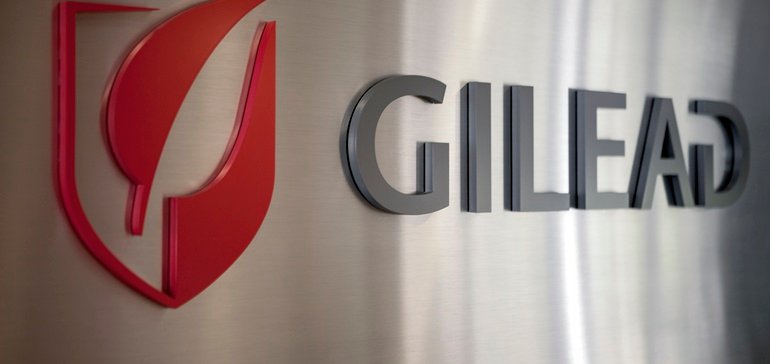
Dive Brief:
- The Food and Drug Administration has granted a full approval to Gilead’s COVID-19 drug Veklury, making it the first medicine to win a standard clearance from the agency to treat the disease caused by the new coronavirus.
- The FDA authorized Veklury for emergency use in May, a declaration that’s only valid during a public health emergency. A full approval means Gilead’s drug can remain on the market even after the current public health crisis is declared over.
- Under the new approval, which was supported by data from a key National Institutes of Health study and two Gilead-run trials, Veklury is cleared for use in adults or children 12 years or older who are hospitalized with COVID-19. But the decision comes just days after a large study sponsored by the World Health Organization found Veklury didn’t prevent COVID-19 deaths, a result that raised doubts about the drug’s effectiveness.
Dive Insight:
Originally tested as a treatment for hepatitis C and then Ebola, Veklury was one of the many drugs thrust into study as coronavirus first began to spread across the world.
Gilead, along with researchers at the National Institutes of Health, sped Veklury through testing and, by April, had results from a randomized, placebo-controlled study showing the drug could help treat COVID-19.
The benefit observed in that trial, dubbed ACTT-1, was modest. When given to hospitalized patients, Veklury helped to hasten recovery from COVID-19 by four days over placebo. While data suggested treatment might help prevent death from the infectious disease, the data wasn’t strong enough to definitively conclude any survival benefit.
Still, the results were a needed win, and a milestone in the race to find drugs that could possibly help. Gilead won an emergency clearance from the FDA in May and, five months later, is now the first drugmaker to secure a full approval for a COVID-19 treatment.
Over that time, Veklury has become a standard option for patients hospitalized with coronavirus disease, although there are some signs its use has waned in the U.S. Some clinical trials of new COVID-19 drugs now consider Veklury as part of baseline care.
“Today’s approval is supported by data from multiple clinical trials that the agency has rigorously assessed and represents an important scientific milestone in the COVID-19 pandemic,” FDA commissioner Stephen Hahn said in a statement.
Yet the timing of the FDA’s approval will likely invite scrutiny and new questions, coming after disappointing results from the WHO study, called SOLIDARITY.
The trial, in which nearly 3,000 patients hospitalized with COVID-19 received Veklury, found treatment didn’t prevent deaths compared to placebo, suggesting the drug’s benefit could be more limited than previously shown. Gilead disputed the findings, pointing to design flaws such as the trial’s open-label approach.
Some analysts, however, wondered whether the data would give the FDA pause, or potentially jeopardize a full approval for Veklury.
Review documents posted by the agency, as well as Hahn’s statement, don’t mention the SOLIDARITY results, nor do they refer to two Veklury studies run in China that delivered more mixed data. The FDA also did not convene an advisory committee to review Gilead’s case for full approval, a step the regulator can take if it’s uncertain about a decision.
The agency did post, however, a question-and-answer document that addressed SOLIDARITY, indicating that the WHO trial’s design wasn’t well suited to assessing a “time-to-recovery” endpoint like what was studied in ACTT-1.
In a letter published Thursday, Merdad Parsey, Gilead’s chief medical officer, appeared to dismiss the WHO trial’s conclusions.
”While the Solidarity trial provided information about Veklury in real-world settings in the early days of the pandemic, it does not negate other study results — particularly from a trial designed with the strictest of scientific standards, as is the case with ACTT-1,” Parsey wrote.
Even with the approval, the usefulness of Gilead’s drug may be limited. Treatment must be given over five, or 10, days and the drug is infused, making early treatment difficult.
Multiple experimental vaccines and antibody drugs could also be cleared for emergency use before the end of the year, each offering the potential to keep people out of the hospital. Other, potentially superior antivirals are in clinical testing as well. Some of those are pills, and are therefore easier to use earlier in a patient’s illness, which is considered a more optimal setting for an antiviral drug.
Gilead has worked intensively to ramp up supply of Veklury over the summer, when demand outstripped the number of doses the company was able to provide. Recently that balance has reversed, and the drugmaker this month took over responsibility for distribution from the U.S. government, which had been handling allocation.
Parsey, in his letter Thursday, said Gilead will have enough drug supply to treat all “clinically appropriate patients globally” next week.
Gilead set Veklury’s price in June at between $ 2,340 and $ 3,120 for a typical five-day treatment course.
As a result of the approval, Gilead received a priority review voucher, an FDA award given to companies that bring drugs to market for neglected diseases or for medical countermeasures. The voucher can be used to shorten regulatory review for another experimental drug or can be sold, as has happened often in past years. Prices have come down, but the vouchers usually change hands for $ 80 million to $ 100 million.
Editor’s note: This article was updated to include mention of the FDA’s question-and-answer document.
